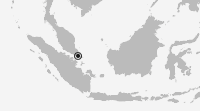
There is an old Japanese saying that goes "Eat in measure and defy the doctor." It simply means eating moderately or stopping eating before you feel totally stuffed is good for your health; just good old common sense when you think about it. The deeper meaning of the proverb lets us know the key to a healthy life is to eat an adequate or fit amount; and hints that by exercising a little self-restraint, if we reduce our measure from 100% to say 80%, rather than a joyless exercise in excessive self-control, we will create a joyful, balanced and healthy life.
Many people in Japan have taken the Great East Japan Earthquake on 11 March 2011 as a wakeup call. The aftermath of the earthquake only served to underline the awareness of truly appreciating the many wonderful things we take for granted in our daily lives. Increasing concern about our excessive consumption of goods and materials, as well as an over emphasis in the media on encouraging excessive consumption has been growing; the consumer society is in danger of consuming itself, and we now have a responsibility to return such out of control human desire to a more sustainable level.
MUJI has always been dedicated to the pursuit of adequacy, of designing products that are truly fit for their purpose. The Japanese word for craftsmanship is monozukuri, and we have put it at the very heart of our products; MUJI does not aim to make just adequate products, but products imbued with craftsmanship. We have taken a rather minimalist approach, always asking such questions as: "Is this necessary?" or "Is this going too far?" However, following the quake disaster, even MUJI strongly felt the need to renew our determination to pursue monozukuri in harmony with society and the earth, and that is why we decided to organize this exhibition.
We constantly question if we have used excessive materials; whether products are overpackaged, or are their sizes and weights too much; can we reduce waste in the ordering, manufacturing or transportation of products? Less is more.
MUJI constantly exercises self-restraint in the design and manufacture of its products; it can be frustrating reducing an item to its essentials, but with practice it becomes natural and even enjoyable. Just as changing our diet or taking up an exercise program, although sometimes painful at first, helps us become fit and healthy, MUJI hopes that as a world society, we will choose a sustainable path for the greater benefit of our Mother Earth and all her people.
"Product fitness 80" reflects MUJI's willingness to educate ourselves by reviewing our own "adequacy" (fitness) now, and is our message to the world.
Ultra thin lotion bottle

A face lotion that is as close to water as possible.
90% of this face lotion is water.
Rather than being concerned about complicated ingredients,
the focus is entirely on the purity of its contens.
Like the lotion, the ultra thin container uses the least possible materials.


Smaller card

How many cards do you carry?
We are surrounded by cards - not just credit cards,
but also identity cards, shop cards, and more besides.
By retaining functionality but halving the size,
the thickness of a wallet can also be halved.


Toilet paper fitness 80

Downsized toilet paper.
By narrowing the width of the toilet roll,resources are saved
without loss of efficiency and packaging costs can also be reduced.


Cotton bud fitness 80

Cotton buds don't have to be that long.
Think about when you use cotton buds,
do they really need to be as long as they are?
MUJI asks questions about even the most trivial matters.


Tape fitness 80

Perfect for just fixing something into place.
How much tape do you use in one year?
We can probably get by with less just by narrowing the tape.
Although only a small measure, this will make a huge difference when adopted by society as a whole.


Ring-bound fitness 80

No change in functionality.
Even when widened slightly, we can probably reduce the amount of materials used without affecting functionality.
Although only a small measure, this will make a huge difference when adopted by society as a whole.


Exhibition information
- TOKYOATELIER MUJI
3-8-3 Marunouchi, Chiyoda-ku, Tokyo
2012.3.1(Thu) - 3.20(Tue)


- LONDONDESIGN MUSEUM
Shad Thames, London SE1 2YD
2012.3.9(Fri) - 3.18(Sun)


- HONG KONGMUJI HARBOUR CITY
Shop 415-419, Level 4, Ocean Centre, Harbour City, Tsim Sha Tusi, Kowloon, Hong Kong
2012.4.12(Thu) - 5.14(Mon)

- HONG KONGMUJI CITYPLAZA
Shop 066-066A, G/F, Cityplaza, 18 Taikoo Shing Road, Taikoo Shing, Hong Kong
2012.4.12(Thu) - 5.14(Mon)

- TAIWANTAIWAN SONGSHAN CULTURE & CREATIVE PARK
No.133, Guangfu S. Rd., Xinyi Dist., Taipei City
2012.6.29(Fri) - 7.10(Tue)

- SINGAPOREION Orchard
2 Orchard Turn #4-14 Ion Orchard, Singapore City
2012.8.3(Fri) - 8.16(Thu)

- SAN FRANCISCOSOMArts Cultural Center
934 Brannan Street, San Francisco, CA 94103, USA
2012.8.24(Fri) - 8.30(Thu)
www.muji.us/fitness80


- THAILANDCENTRAL DEPARTMENT STORE CHIDLOM
Central Department Store Chidlom 3rd floor, The Event Hall, 1027 Ploenchit Road, Lumpini, Pathumwan, Bangkok
2012.10.9(Tue) ― 10.22(Mon)
